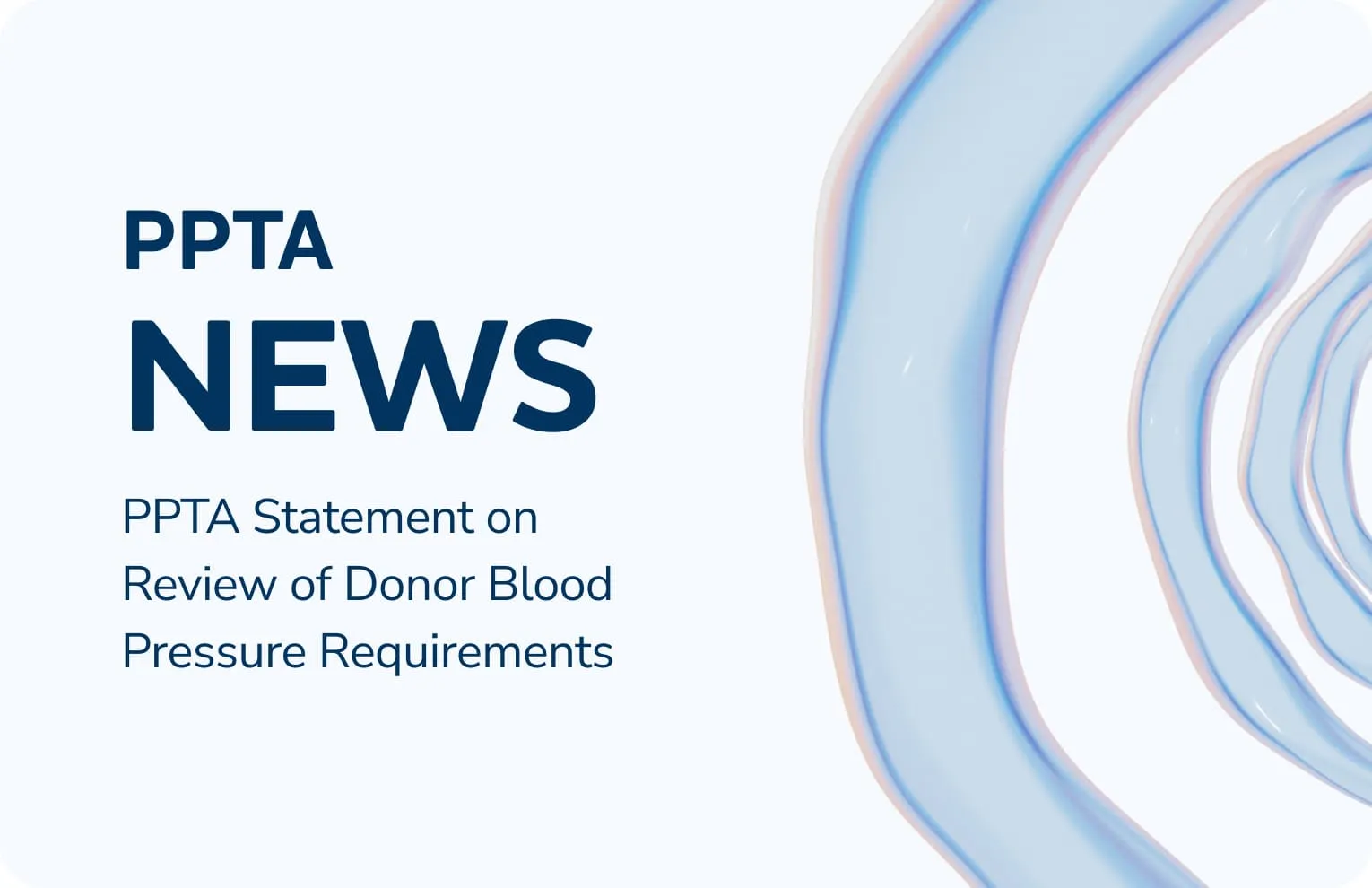June 16, 2025
By Marios Georgiou, PPTA Manager for Communications and Advocacy
The International Plasma Protein Congress (IPPC) recently celebrated its 20th year from 20 to 21 May 2025 in Warsaw, Poland. The theme was “20 Years of Progress Within a Unique and Global Supply Chain” and nearly 300 participants came together to reflect on past milestones and collaborate toward building a more resilient future for the plasma sector.
In this blog post, get ready to experience IPPC 2025 as if you were seated in the front row. This recap provides an insider’s perspective on the sessions, spotlighting the key takeaways and moments from the special anniversary event.
Step Inside the Sessions
“Patients are the experts of their lived experiences.”
-Martine Pergent
Session 1 brought together four patient advocates to discuss the progress made in the plasma sector over the past twenty years, as well as ongoing challenges. Martine Pergent, President of IPOPI, highlighted that many patients with Primary Immunodeficiency (PID) in Europe still face lengthy "diagnostic odysseys" and significant barriers to accessing care. Nancy Di Salvo, of the GBS-CIDP Foundation, shared her experience from a time when immunoglobulins were prescribed off-label, stating that patients often had to "beg for care."
“Infections don’t take holidays.”
-Leire Solis Garate
Session 2 featured four speakers who addressed the EU’s response to medicine shortages, emphasising the urgent need to build resilient supply chains. The discussion examined EU legislation, including the Critical Medicines Act and Pharmaceutical Package. Panelists also discussed the importance of fit-for-purpose policies and stronger collaboration between all stakeholders to ensure patients' uninterrupted access to plasma-derived medicines.
“The barriers are high and many.”
-Tineke Zuurbier
Session 3 broadened the lens to examine global access to plasma-derived medicines, featuring cases from Brazil, Egypt, Iran, and Uzbekistan. Dr. Amin Magdy of Grifols Egypt detailed Egypt’s growing plasma collection system based on a public-private model, while Nariman Sadri, CEO of Darman Ara Co, highlighted Iran’s opening of its first private plasma center. Tineke Zuurbier of Takeda, stressed that “the barriers are high and many,” adding that to reduce them, we must drive system changes tailored to local realities.
Session 4 focused on innovation and research. Joerg Schuettrumpf of Grifols, offered an overview of promising new medicinal products derived from immunoglobulins. Rudolf Hartman of Takeda, discussed the industry’s efforts to ease the treatment burden for patients using IgG therapies. Andrea Denardo of Kedrion emphasised the identification of new target proteins in unused plasma fractions to develop treatments for ultra-rare diseases.
“Real-world evidence can be used to support regulatory decision-making.”
-Juan Jose A Bellan-Andres
Session 5 highlighted how ongoing research enhances plasma donor safety. Michelle Fransen, Jose Abellan-Andres, and Eva Hellman shared scientific insights that demonstrated the industry's commitment to continuously improving donor safety and optimising plasma collection processes.
“Patients can’t wait 20 years for change.”
-Jean-Philippe Plançon
Session 6 returned to the core challenge of building a resilient plasma supply chain in Europe. The conversation centred on the ongoing efforts within the EU, the complexities of harmonising the SoHO Regulation, and the importance of increasing plasma collection. Milan Maly, chairman of European Plasma Alliance, emphasised the effectiveness of the public-private co-existence model to increase plasma collection, while Lorenzo Montrasio, called for a stronger focus on health literacy. Jean-Philippe Plançon, President of EPODIN, underscored the urgency of the issue, reminding the audience, "Patients can’t wait 20 years for progress."
“Patients are grateful and happy to be treated with immunoglobulins — they feel rescued.”
-Anna Kostera-Pruszczyk
Session 7 examined how national policies influence access to plasma-derived medicines. Adrian Goretzki of Healthcare Education Institute stressed the importance of including patient voices in value assessments. Jakub Dvořáček, a government official, explained how the Czech Republic is working to reduce access barriers. Natalia Bartosik of Takeda urged greater recognition of the proven value of PDMPs in health systems. Prof. Anna Kostera-Pruszczyk shared the clinical consequences of medicine shortages. Dr. Tobias Volkwein of D+B Lawyers explored the legal dimensions, highlighting challenges in reimbursement and the lack of a unified EU approach.
Three special segments
“Knowing that my plasma turns into a lifesaving medicine is absolutely heartwarming."
-Pauline Meßner
IPPC 2025 also featured several special segments and video messages from two Members of the European Parliament (MEPs).
- The Plenary Session featured international trade expert Paul Rosenthal who explored the impact of U.S. trade policies on plasma-derived medicines and PPTA’s efforts to protect patient access.
- The second segment was a leadership panel which featured Anita Brikman, Ugo Di Francesco of Kedrion, Margaret Drysdale of Takeda, and David Bell of Grifols discussing industry challenges, collaboration, and innovation.
- The third offered a heartfelt account of what inspired Pauline Meßner, a plasma donor from Germany, to start donating and why giving back in this way is so important to her.
- In video remarks, MEP Andras Kulja emphasised the importance of patient access and supply chain resilience, while MEP Adam Jarubas called for a “Critical Medicines Fund” to ensure adequate financing for the Critical Medicines Act.
That's a Wrap!
PPTA strives to create an IPPC agenda filled with timely, science-driven, and policy-relevant discussions that resonate with stakeholders across the global plasma community. IPPC 2025 once again delivered meaningful messages and actionable insights for the future of the sector.
Be sure to save the date for IPPC 2026 in Milan on 28–29 April. We look forward to seeing you there.





